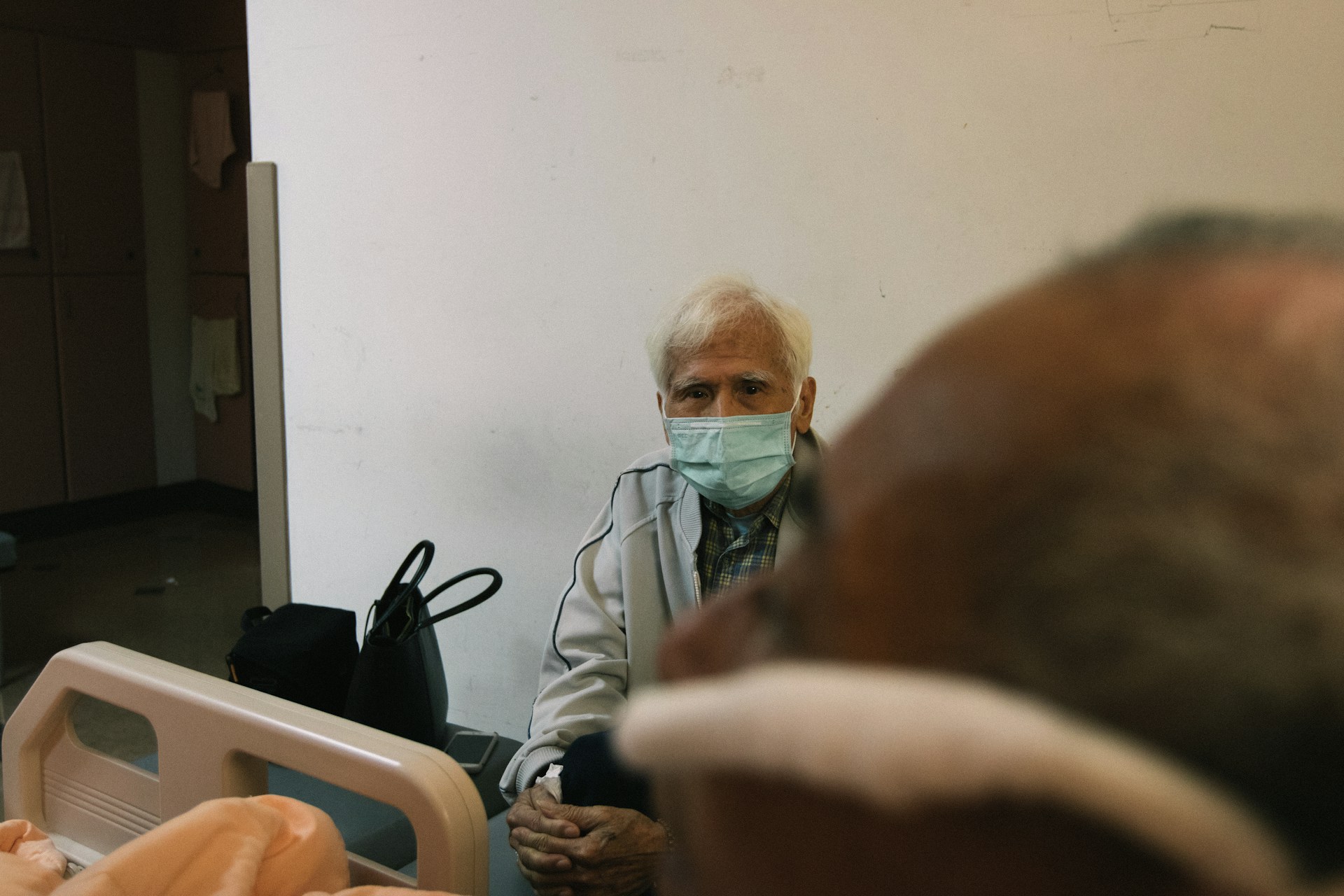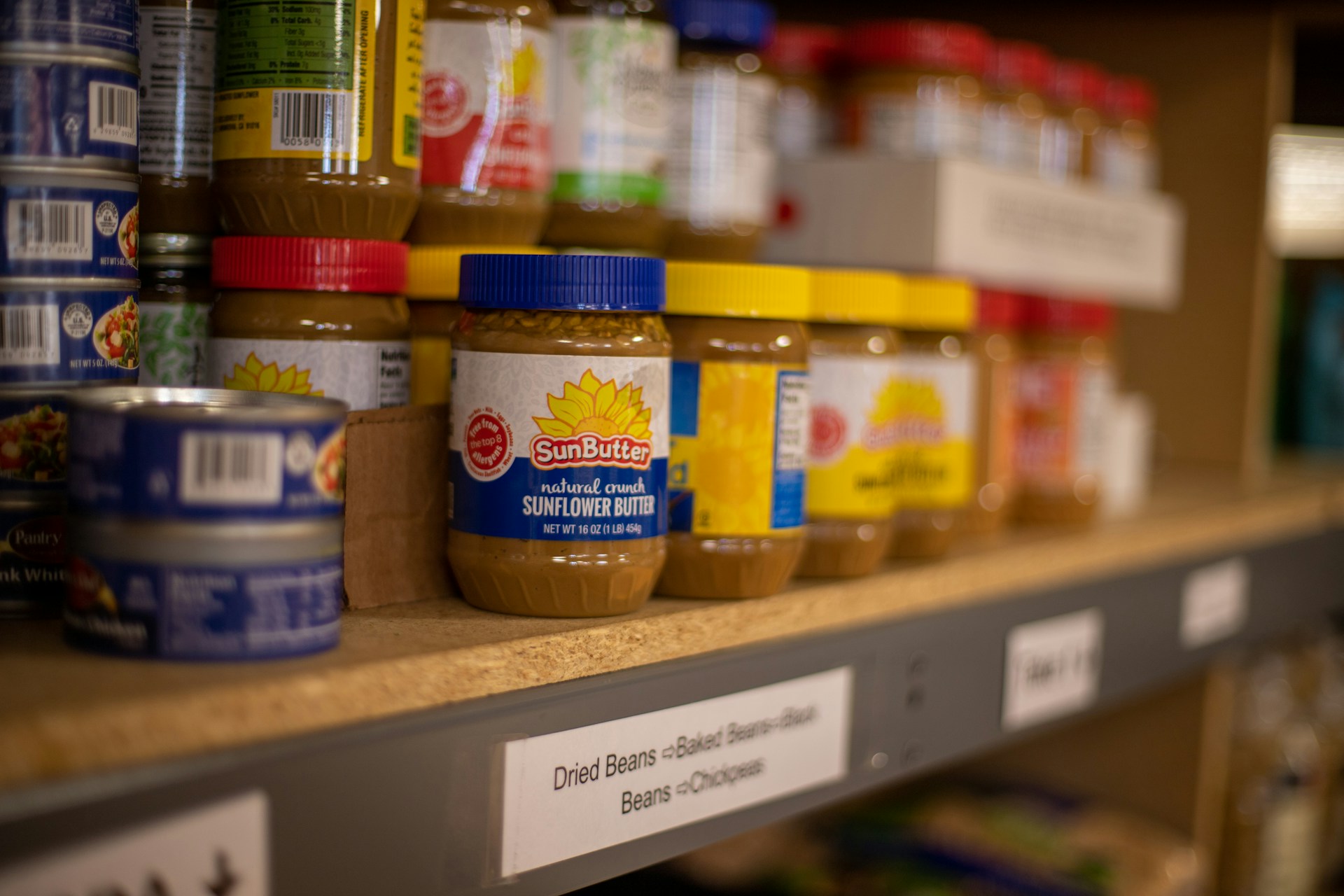Factors Affecting Adult Food Traders Nutritional Status in Bogor Regency
Faktor-Faktor yang Mempengaruhi Status Gizi Pedagang Makanan Usia Dewasa di Kabupaten Bogor

Downloads
Background: Overnutrition is becoming more common in Indonesia, with 13.5% of adults overweight and 28.7% obese. A lack of physical activity, excessive food consumption, and high consumption of risky foods such as sugar, salt, and fat are risk factors for nutritional status.
Objectives: To determine the factors that influence the nutritional status of adult food traders in Bogor Regency.
Methods: Researchers used a cross-sectional design in this study involving 99 food trader respondents aged 26-45 years using a convenience sampling method. Data collection started from January to May 2023. Nutritional status was measured using the Body Mass Index and then classified based on PGN 2014. Meanwhile, data on sugar, salt, and fat intake was collected using SQ-FFQ (Semi Quantitative Food Frequency Questionnaire) and PAL (Physical Activity Level) to determine the respondent's level of physical activity. Data analysis was using Fisher's test and logistic regression.
Results: Based on Fisher's test analysis, there was a significant relationship between salt intake (p=0.041), physical activity (p=0.002), and food traders classification (p=0.000) with nutritional status. Meanwhile, no significant relationship was found between sugar and fat intake with nutritional status. The results of the logistic regression test showed that the most influential factor of nutritional status was excessive salt intake. Respondents with excessive salt intake had a 6.03 (95% CI=1.07-33.76) times higher risk of experiencing nutritional problems.
Conclusions: There was a relationship between salt intake, physical activity, and food traders' classification with nutritional status. Meanwhile, there was no relationship between sugar and fat intake with nutritional status. The factor that most influenced the nutritional status of adult food traders in Bogor Regency was salt intake.
Ambarwati, D., Kusuma, I. R. & Pangesti, W. D. Kadarzi (Keluarga Sadar Gizi) Sebagai Sarana Meningkatkan Status Gizi Ibu Dan Anak. (2019).
Kemenkes. Laporan Provinsi Jawa Barat. (2018).
Arizal Aditya Januarsa, H. & Esty Fadhila, Md. M. Perancangan Motion Graphic Dalam Membatasi Konsumsi Gula, Garam Dan Lemak Bagi Dewasa Muda. Jurnal Rekamakna Ppn No (2018).
Widya Dwinugraha, K., Oklita Anggiruling, D., Studi Gizi, P. & Tinggi Ilmu Kesehatan Bogor Husada, S. Gambaran Pola Konsumsi Gula, Garam, Lemak Dan Status Gizi Mahasiswa Stikes Bogor Husada. Vol. 2 (2022).
Rosita, R. Pengaruh Pandemi Covid-19 Terhadap Umkm Di Indonesia. Jurnal Lentera Bisnis 9, 109 (2020).
Zata, J. & Nurhadi, L. Pengaruh Pandemi Covid-19 Terhadap Tingkat Aktivitas Fisik Pada Masyarakat Komplek Pratama, Kelurahan Medan Tembung. Jurnal Health Sains 1, (2020).
Arifin, H. Et Al. Analysis Of Modifiable, Non-Modifiable, And Physiological Risk Factors Of Non-Communicable Diseases In Indonesia: Evidence From The 2018 Indonesian Basic Health Research. J Multidiscip Healthc 15, 2203–2221 (2022).
Warganegara, E. & Nur, N. N. Faktor Risiko Perilaku Penyakit Tidak Menular. Nida Nabilah Nur | Faktor Risiko Perilaku Penyakit Tidak Menular Majority | Vol. 5 (2016).
Ella, Y. Et Al. The Description Of Obesity Among Housewifes In The World. Vol. 14 (2022).
Sudargo, T., Freitag, H., Kusmayanti, N. A., & Rosiyani, F. Pola Makan Dan Obesitas. (2018).
Sary, N. L., Rahmawati, S., Yusni, Y., Husnah, H. & Saminan, S. Hubungan Kebiasaan Konsumsi Makanan Dengan Status Gizi Pegawai Sekretariat Daerah Kabupaten Aceh Barat. Jurnal Kedokteran Syiah Kuala 21, (2021).
Mkhize, X., Mthembu, B. E. & Napier, C. Transforming A Local Food System To Address Food And Nutrition Insecurity In An Urban Informal Settlement Area: A Study In Umlazi Township In Durban, South Africa. J Agric Food Res 12, (2023).
Ronitawati, P. & Elvandari, M. Analisis Perbedaan Asupan Zat Gizi Berdasarkan Status Gizi Wanita Dewasa Peserta Majlis Taklim Nurul Hidayah Cipulir Kebayoran Lama Jakarta Selatan. Nutrire Diaita Vol. 9 (2017).
Dunford, E. K., Popkin, B. & Ng, S. W. Junk Food Intake Among Adults In The United States. Journal Of Nutrition 152, 492–500 (2022).
Diii, S. P., Kesehatan, A., Bhakti, I., Kediri, W. & Hidayat, A. Hubungan Konsumsi Makanan Berisiko Dan Aktivitas Fisik Dengan Status Gizi Mahasiswa Kampus X Kediri Association Beetwen Risk Foods Consumption And Physical Activity To Nutritional Status Among Students Of X College Kediri.
Huang, C. Et Al. Total Sugar, Added Sugar, Fructose, And Sucrose Intake And All-Cause, Cardiovascular, And Cancer Mortality: A Systematic Review And Dose-Response Meta-Analysis Of Prospective Cohort Studies. Nutrition 112032 (2023) Doi:10.1016/J.Nut.2023.112032.
Feart, C. Nutrition And Frailty: Current Knowledge. Progress In Neuro-Psychopharmacology And Biological Psychiatry Vol. 95 Preprint At Https://Doi.Org/10.1016/J.Pnpbp.2019.109703 (2019).
Ferry Risky Mega Puspita, N. Analisis Asupan Gula, Garam Dan Lemak (Ggl) Dari Jajanan Pada Anak Sekolah Dasar Negeri Dan Swasta Di Kota Surabaya Analysis Intake Of Sugar, Salt And Fat (Ssf) From Snacks Among Students In Public And Private Elementary School In Surabaya. (2019) Doi:10.2473/Amnt.V3i1.2019.58-62.
Saragih, M. Description Of Potassium, Natrium And Nutrition Al Status In Adults Young Hypertension Patiens. Media Informasi 17, 11–16 (2022).
Lanaspa, M. A. Et Al. High Salt Intake Causes Leptin Resistance And Obesity In Mice By Stimulating Endogenous Fructose Production And Metabolism. Proc Natl Acad Sci U S A 115, 3138–3143 (2018).
Navia, B. Et Al. La Ingesta De Sodio Puede Favorecer El Incremento De Peso; Resultados Del Estudio Fanpe Realizado En Una Muestra Representativa De Adultos Espanoles. Nutr Hosp 29, 1283–1289 (2014).
Rolag, A. M. Hubungan Pola Konsumsi Gula, Garam, Lemak Dengan Status Gizi Siswa Siswi Sekolah Dasar Islam Terpadu An-Najah Di Kota Depok Skripsi. (2022).
Ginting, W. Pengaruh Asupan Protein Dan Asupan Garam Terhadap Kejadian Hipertensi Pada Wanita Usia Subur Dengan Obesitas Di Wilayah Kerja Puskesmas Patumbak Tahun 2017. (2018).
Febytia, N. Dinda. Hubungan Kualitas Tidur, Asupan Zat Gizi Makro Dan Aktivitas Fisik Dengan Status Gizi Mahasiswa Gizi Umj. Https://Journal.Ipb.Ac.Id/Index.Php/Jgizidietetik (2022).
Praditasari, J. A. & Sumarmik, S. Asupan Lemak, Aktivitas Fisik Dan Kegemukan Pada Remaja Putri Di Smp Bina Insani Surabaya. Media Gizi Indonesia 13, 117 (2018).
Surbakti, L. Hubungan Asupan Karbohidrat , Lemak , Dan Kalsium Dengan Status Gizi Pada Remaja Smp Advent Lubuk Pakam. (2019).
Puji, L. Et Al. Hubungan Stres, Pola Makan, Dan Aktivitas Fisik Dengan Status Gizi Mahasiswa. Https://Journal.Unnes.Ac.Id/Sju/Index.Php/Nutrizione/ (2022).
Abadini, D., Wuryaningsih, C. E., Fakultas, ) & Masyarakat, K. Determinan Aktivitas Fisik Orang Dewasa Pekerja Kantoran Di Jakarta Tahun 2018. Jurnal Promosi Kesehatan Indonesia Vol. 14 (2019).
Retno Yunitasari, A., Sinaga, T. & Nurdiani, R. Asupan Gizi, Aktivitas Fisik, Pengetahuan Gizi, Status Gizi Dan Kebugaran Jasmani Guru Olahraga Sekolah Dasar. (2019) Doi:10.204736/Mgi.V14i2.197-206.
Roring, N. M., Posangi, J. & Manampiring, A. E. Hubungan Antara Pengetahuan Gizi, Aktivitas Fisik, Dan Intensitas Olahraga Dengan Status Gizi. Jurnal Biomedik:Jbm 12, 110 (2020).
Nindayanti, S. Hubungan Tingkat Pengetahuan, Asupan Gizi Dan Aktivitas Fisik Terhadap Status Gizi Atlet Sepak Bola Ps Kerinci Tahun 2018. (2019).
Ulil, S., Galuh, A. & Prameswari, N. Hubungan Pola Makan, Sedentary Lifestyle, Dan Durasi Tidur Dengan Kejadian Gizi Lebih Pada Remaja (Studi Kasus Di Sma Negeri 1 Demak). Ijphn 2, 112–121 (2022).
Copyright (c) 2024 Amerta Nutrition

This work is licensed under a Creative Commons Attribution-ShareAlike 4.0 International License.
AMERTA NUTR by Unair is licensed under a Creative Commons Attribution-ShareAlike 4.0 International License.
1. The journal allows the author to hold the copyright of the article without restrictions.
2. The journal allows the author(s) to retain publishing rights without restrictions
3. The legal formal aspect of journal publication accessibility refers to Creative Commons Attribution Share-Alike (CC BY-SA).
4. The Creative Commons Attribution Share-Alike (CC BY-SA) license allows re-distribution and re-use of a licensed work on the conditions that the creator is appropriately credited and that any derivative work is made available under "the same, similar or a compatible license”. Other than the conditions mentioned above, the editorial board is not responsible for copyright violation.












































